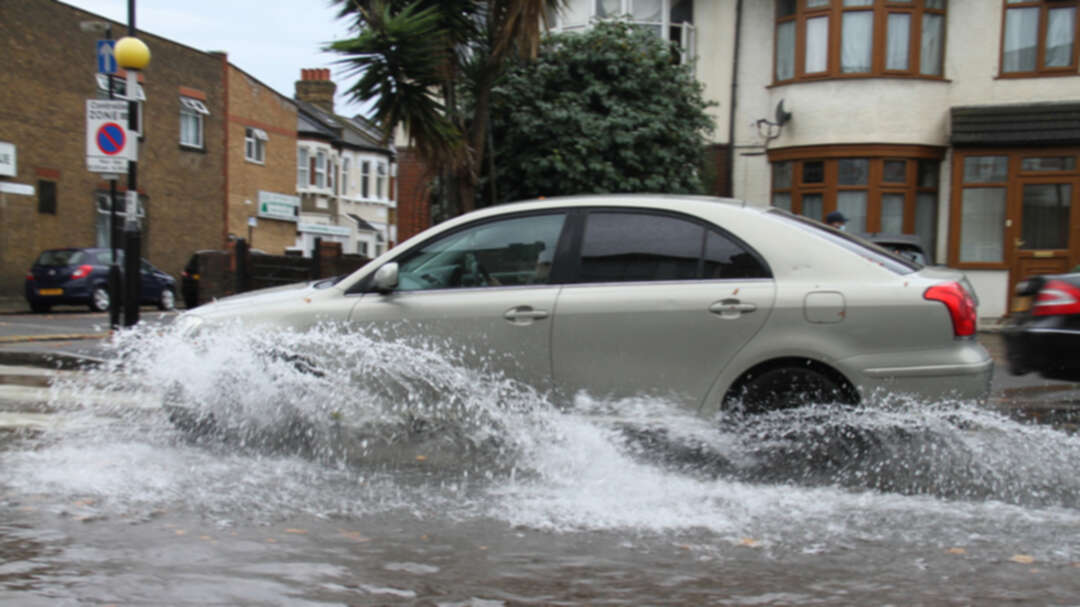-
UK’s climate is changing due to impact of global warming

According to the RT, Met Office researchers have warned that the impact of global warming is “already changing” the UK’s climate, with extreme weather, such as heatwaves and floods, set to hit the nation on an increasingly regular basis in the future.
The annual State of the UK Climate report, released on Thursday, found that 2020 was the third-warmest, fifth-wettest and eighth-sunniest year on record. It marked the first time a 12-month period has ever secured a top 10 place for all three measures.
Examining the data, the lead author of the report, Mike Kendon, warned that it shows “the climate is already changing here in the UK,” raising the risk of the nation being hit by extreme weather events on a more regular basis, as global temperatures to continue to rise.
The paper confirms the Met Office’s assessment that the country is becoming hotter, sunnier, and wetter due to the effects of climate change. All of the top 10 warmest years have occurred since 2002, and six of the wettest ever years since 1998.

The warning laid out within the State of the UK Climate report reiterates concerns raised previously by British scientists, who highlighted how rising greenhouse gas levels have already surpassed a point that allows “for a manageable future for humanity.”
“We had roads melting last year, rails start to buckle, electric cabling starts to buckle,” Liz Bentley, head of the Royal Meteorological Society, explained, suggesting that existing UK infrastructure will struggle to cope with future extreme weather events.
The State of the UK Climate is an annual report produced by the non-partisan Met Office, providing officials with an up-to-date assessment of the impact of climate change on Great Britain, expanding scientific understanding of trends, variations and extreme weather events.
The Met Office’s report comes after London suffered two destructive floods in only a few weeks, causing millions of pounds’ worth of damage to businesses, homes, and crucial infrastructure. Flash floods, which on both occasions came after a significant amount of rain fell within a short space of time, cut off individuals, leaving them without power and trapped in cars or properties surrounded by rising water levels.
In the wake of the London floods, Climate Central, a scientific news outlet, published a map that showed how central areas of the UK’s capital city could regularly be plunged underwater by 2030, as rising sea levels threaten to plague numerous boroughs.
Source: RT
Image source: David Mbiyu/SOPA Images/LightRocket via Getty Image-RT
Tags
You May Also Like
Popular Posts
Caricature
BENEFIT AGM approves 10%...
- March 27, 2025
BENEFIT, the Kingdom’s innovator and leading company in Fintech and electronic financial transactions service, held its Annual General Meeting (AGM) at the company’s headquarters in the Seef District.
During the meeting, shareholders approved all items listed on the agenda, including the ratification of the minutes of the previous AGM held on 26 March 2024. The session reviewed and approved the Board’s Annual Report on the company’s activities and financial performance for the fiscal year ended 31 December 2024, and the shareholders expressed their satisfaction with the company’s operational and financial results during the reporting period.
The meeting also reviewed the Independent External Auditor’s Report on the company’s consolidated financial statements for the year ended 31 December 2024. Subsequently, the shareholders approved the audited financial statements for the fiscal year. Based on the Board’s recommendation, the shareholders approved the distribution of a cash dividend equivalent to 10% of the paid-up share capital.
Furthermore, the shareholders endorsed the allocation of a total amount of BD 172,500 as remuneration to the members of the Board for the year ended 31 December 2024, subject to prior clearance by related authorities.
The extension of the current composition of the Board was approved, which includes ten members and one CBB observer, for a further six-month term, expiring in September 2025, pending no objection from the CBB.
The meeting reviewed and approved the Corporate Governance Report for 2024, which affirmed the company’s full compliance with the corporate governance directives issued by the CBB and other applicable regulatory frameworks. The AGM absolved the Board Members of liability for any of their actions during the year ending on 31st December 2024, in accordance with the Commercial Companies Law.
In alignment with regulatory requirements, the session approved the reappointment of Ernst & Young (EY) as the company’s External Auditors for the fiscal year 2025, covering both the parent company and its subsidiaries—Sinnad and Bahrain FinTech Bay. The Board was authorised to determine the external auditors’ professional fees, subject to approval from the CBB, and the meeting concluded with a discussion of any additional issues as per Article (207) of the Commercial Companies Law.
Speaking on the company’s performance, Mr. Mohamed Al Bastaki, Chairman BENEFIT , stated: “In terms of the financial results for 2024, I am pleased to say that the year gone by has also been proved to be a success in delivering tangible results. Growth rate for 2024 was 19 per cent. Revenue for the year was BD 17 M (US$ 45.3 Million) and net profit was 2 Million ($ 5.3 Million).
Mr. Al Bastaki also announced that the Board had formally adopted a new three-year strategic roadmap to commence in 2025. The strategy encompasses a phased international expansion, optimisation of internal operations, enhanced revenue diversification, long-term sustainability initiatives, and the advancement of innovation and digital transformation initiatives across all service lines.
“I extend my sincere appreciation to the CBB for its continued support of BENEFIT and its pivotal role in fostering a stable and progressive regulatory environment for the Kingdom’s banking and financial sector—an environment that has significantly reinforced Bahrain’s standing as a leading financial hub in the region,” said Mr. Al Bastaki. “I would also like to thank our partner banks and valued customers for their trust, and our shareholders for their ongoing encouragement. The achievements of 2024 set a strong precedent, and I am confident they will serve as a foundation for yet another successful and impactful year ahead.”
Chief Executive of BENEFIT; Mr. Abdulwahed AlJanahi commented, “The year 2024 represented another pivotal chapter in BENEFIT ’s evolution. We achieved substantial progress in advancing our digital strategy across multiple sectors, while reinforcing our long-term commitment to the development of Bahrain’s financial services and payments landscape. Throughout the year, we remained firmly aligned with our objective of delivering measurable value to our shareholders, strategic partners, and customers. At the same time, we continued to play an active role in enabling Bahrain’s digital economy by introducing innovative solutions and service enhancements that directly address market needs and future opportunities.”
Mr. AlJanahi affirmed that BENEFIT has successfully developed a robust and well-integrated payment network that connects individuals and businesses across Bahrain, accelerating the adoption of emerging technologies in the banking and financial services sector and reinforcing Bahrain’s position as a growing fintech hub, and added, “Our achievements of the past year reflect a long-term vision to establish a resilient electronic payment infrastructure that supports the Kingdom’s digital economy. Key developments in 2024 included the implementation of central authentication for open banking via BENEFIT Pay”
Mr. AlJanahi concluded by thanking the Board for its strategic direction, the company’s staff for their continued dedication, and the Central Bank of Bahrain, member banks, and shareholders for their valuable partnership and confidence in the company’s long-term vision.
opinion
Report
ads
Newsletter
Subscribe to our mailing list to get the new updates!






















